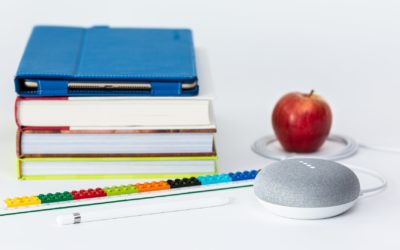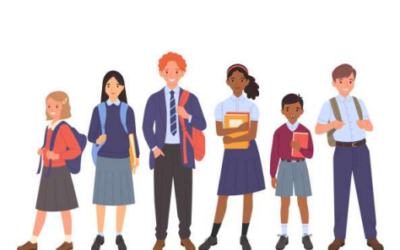“Children with dyslexia often exhibit increased variability in sensory and cognitive aspects of hearing relative to typically developing peers.” – Hornickel et al., 2012 PNAS There is a long research history establishing auditory processing difficulties among children and adults who are dyslexic. What may be confusing to non-scientific people is that auditory processing is not simply “hearing”. It relates to the complex networks in the brain that interpret what sounds are heard.
Auditory processing difficulties in dyslexic people don’t present with abnormalities on simple screening hearing tests; instead, the difficulties present in tests that examine the effect of listening over background noise, for instance, or processing of rapid sounds. The reason it’s important to be aware of this is that auditory processing […]Dyslexia: Beyond Decoding
If dyslexic students are struggling to decode words, a program of intensive structured literacy will help – but help with phonological awareness may not be sufficient to help them become fluent readers. Why? Because reading fluency, or the ability to read with “speed, accuracy, and proper expression” is also influenced by other factors such as rapid naming. Recently researchers found that: “most adolescents (with dyslexia) were classified as either naming speed only (about a third of the group) or double deficit when defining impairment using performance thresholds to classify groups.
This may suggest that although early phonological deficits are amenable to remediation, identification of language symbols fails to become automatized in most individuals with dyslexia and may require more targeted intervention.” Their […]My Pandemic Hack for Classes
Shelley Wear, a long-time volunteer on our Dyslexic Advantage editorial team shared these pandemic hacks for her classroom. Thanks Shelley! “The struggle is real to make sure students understand what you are saying with a mask on. I purchased a personal amplifier (small box with microphone headset) and it has been a game changer for my classroom. Students are much more attentive and I believe it has really helped. I am also using a multisensory approach to decoding, teaching Visual Phonics. The paras have overheard students talking about how fun it is when kids are in the hallways and think no one is listening. I am relieved, because I have limited access to middle school materials to teach decoding and a large percentage of my […]
Dyslexia Advocacy: Say Dyslexia 2.0
From Chalkbeat’s story, “NYC plans to screen nearly 200,000 students in the early grades to uncover struggling readers. Then what?” “In a massive bid to gauge reading skills following COVID-related learning disruptions, New York City’s education department is introducing literacy screening for its nearly 200,000 children in kindergarten through second grade… While the education department’s screeners aren’t designed to identify students at risk of having dyslexia, which is the most common learning disability, they are able to identify learning gaps in skills that are often associated with dyslexia, literacy experts say. But many also note that screening alone will not address systemic issues that contribute to widespread literacy deficits across the city, such as uneven curriculum and inadequate teacher training. The success of the […]
Understanding Conceptual vs. Procedural Knowledge in Math [Premium]
With math scores lagging tremendously due to pandemic-related school, many of us may suddenly find ourselves responsible for supervising (if not tutoring) math. If that’s the case, it’s important to keep in mind the big picture of math learning. Of course the issue of conceptual and procedural learning apply to all subjects, not just math, but it especially becomes relevant when problem solving can become complex; symbols and abstractions must be used, and multiple steps for problem solving are necessary. There’s an especially nice description of the differences between conceptual and procedural knowledge in math from Ruthie Sloan’s Teach Math Literacy blog. Many of us learned math only through procedural learning. We didn’t learn “why” we did certain steps like “flip upside-down and multiply,” […]
I Never Thought I’d Be Homeschooling… [Premium]
We never thought we would be homeschooling when we started almost 2 decades ago. What our family can say today, is that looking back, we’re so grateful for our entire homeschooling journey – even though initially homeschooling chose us rather than the other way around. Today there are so many reasons to homeschool and ways that homeschooling can also be a good fit for dyslexic students, so take heart in the adventure ahead of you and may the coming year be one good surprise after another. WHY HOMESCHOOLING CAN BE A GOOD MATCH FOR MANY STUDENTS Schooling at an Individual Pace The first reason why homeschooling can be a good match for many students is that traditional schooling can be a […]
Math: Multiple Representations [Premium]
If you have a lot of ground to cover for the coming school year, consider the use of multiple representations to improve the efficiency of learning. First, as a person who is math-challenged herself and was tasked at one time with tutoring one of our kids with similar math difficulties, I am sympathetic to people who are tasked with teaching math. The truth is, I wasn’t good at it myself, so I found myself getting frustrated when my student didn’t understand. I had little flexibility between math representations – and as a result tended to teach math the way I was taught it…rote memory of sequenced steps – which I was to find was the last thing my student should have been trying […]
Dyslexia and Mapping Out the Mind [Premium]
When Dan Pink wrote his book about the world needing more skills of the Conceptual Age, many in the dyslexia community couldn’t help but notice that his list looked a lot like common lists of dyslexic strengths: – Artistry – Inventiveness – Big-picture thinking – Pattern recognition – Empathy The implications for education and careers were straightforward. The goals of education and satisfying work should not be mere mastery of information, but a mastery of concepts that could be used flexibly to solve problems and create things that are new. Pink is not a neuroscientist; he is a popular author and observer of trends. Where are we now in our understanding of “dyslexic thinking”? There are many interesting lines of thought coming together these […]
Foreign Language Learning [Premium]
Q: HOW CAN I IMPROVE MY FLUENCY WITH A SECOND LANGUAGE? Recently, a member of this community asked about how to improve his fluency with a foreign language. He mentioned that he’d been trying to learn for the past 30 years, but only recently started making more progress with the app Yabla because it was visual and didn’t rely on audio alone. Yabla is an interactive video approach to foreign language learning that provides two channels of captions that can be shown or hidden and TV shows, music videos, documentaries, and interviews. A: I can see how Yabla can help with improving speed of listening. The videos provide context and the scenes may make the dialogues more memorable than if they were read […]
Answer Apps and the Benefits of Learning in Reverse [Premium]
Conventional lecture courses for subjects with problem sets can be inefficient. For dyslexic students if the information comes in too quickly, they can’t follow steps as a teacher works through problems in real time. A recurring scenario for many students (and not just the dyslexic ones) is that to truly understand, the students must work through the material themselves at home. The lucky ones have a parent, sibling, or someone else to be a tutor, while others may struggle looking at incomplete notes with only a hazy idea of what teachers did to arrive at their answers. Having teachers notes or having a flipped classroom (watch a video first, then see the problems worked by a teacher) can improve this situation, but inevitably there […]
Learning with Dr. Sara Renzulli [Premium]
“I was identified as dyslexic and having ADHD in the fifth grade. I struggled quite a bit academically…” — Sara Renzulli, PhD, Visiting Professor, U Conn Recently I had the pleasure of talking to Dr. Sara Renzulli, a teacher in the Counselor Education department at the University of Connecticut, and daughter of illustrious educators, Drs. Joseph Renzulli and Sally Reis. I had discovered Sara’s interview at the 2E Newsletter and read some research publications of her work with college students. “My dyslexia made it extremely hard to learn how to read. I remember being so frustrated. If things were explained to me orally or read out loud to me, I understood what was going on. I just couldn’t decode words on my own […]
Interconnected Multisensory Learning [Premium]
“My mind isn’t a train track. It’s like a web browser with lots of hyperlinks…” – Honors College Student with Dyslexia What is interconnected multisensory learning? INTERCONNECTED MULTISENSORY LEARNING Part of the educational challenges of growing up with dyslexia is learning how to harness the tremendous power that comes with interconnected and multisensory learning. On the advantage side, dyslexic learners are rich experiential and incidental learners. Remember that research study from Sweden and Georgetown University? “The Developmental Dyslexia group was not only not impaired at the task, but actually showed superior recognition memory (emphasis, ours), as compared to the control children. These findings complement previous reports of enhanced cognition in other domains (e.g., visuo-spatial processing) in DD. Possible underlying mechanisms for the observed […]





![Understanding Conceptual vs. Procedural Knowledge in Math [Premium]](https://www.dyslexicadvantage.org/wp-content/uploads/2021/10/conceptual-math-400x250.png)
![I Never Thought I’d Be Homeschooling… [Premium]](https://www.dyslexicadvantage.org/wp-content/uploads/2021/10/I-Never-Thought-Id-Be-Homeschooling-2-400x250.png)
![Math: Multiple Representations [Premium]](https://www.dyslexicadvantage.org/wp-content/uploads/2021/10/Math-Multiple-Representations-2-400x250.jpg)
![Dyslexia and Mapping Out the Mind [Premium]](https://www.dyslexicadvantage.org/wp-content/uploads/2021/10/Dyslexia-and-Mapping-out-the-Dyslexic-Mind-1-400x250.png)
![Foreign Language Learning [Premium]](https://www.dyslexicadvantage.org/wp-content/uploads/2021/10/Foreign-Languages-400x250.png)
![Answer Apps and the Benefits of Learning in Reverse [Premium]](https://www.dyslexicadvantage.org/wp-content/uploads/2021/09/answer-apps-2-2-400x250.jpg)
![Learning with Dr. Sara Renzulli [Premium]](https://www.dyslexicadvantage.org/wp-content/uploads/2021/09/learning-with-dr-sara-1-400x250.png)
![Interconnected Multisensory Learning [Premium]](https://www.dyslexicadvantage.org/wp-content/uploads/2021/08/Interconnected-2-400x250.jpg)













